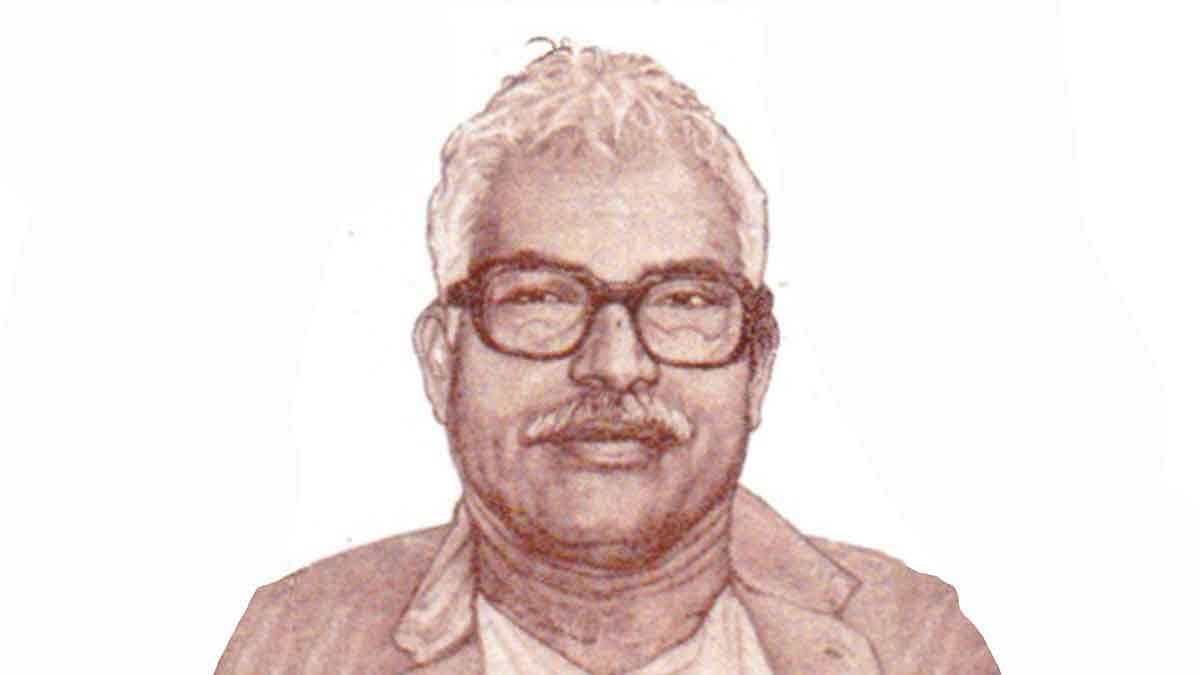Patna: Two-time Bihar chief Minister Karpoori Thakur died of a heart attack in 1988. Yet, he looms large on the state’s political landscape, with rival political parties still trying to claim his legacy.
On Monday, two days before his 100th birth anniversary, the Rashtrapati Bhavan announced that he will be honoured with a Bharat Ratna.
Meanwhile, on the day of the birth anniversary, both the Janata Dal (United) and the BJP are holding mega shows in Patna.
“The very fact that two rival parties are claiming his legacy proves that Karpoori Thakur is still relevant for the votes of the downtrodden sections of Bihar,” said former MP Vijay Krishna, one of Thakur’s followers.
“A generation has passed since his death. But the younger generation knows Thakur’s personality through their elder generation — about his integrity, commitment for downtrodden and dry honesty,” he added. “His persona is so large that even his political foes are forced to take his name.”
Thakur hailed from the Hajaam (barber) caste, which constitutes less than 1 percent of the state’s population.
But the caste is one of the 100-odd that comprise the Extremely Backward Classes (EBCs), which jointly form 36 percent of the population and are thus a crucial determinant in the upcoming Lok Sabha elections.
Thakur announced a quota for the backward castes way back in 1978, a year before the Mandal commission was set up.
In line with the recommendations of the Mungeri Lal Commission, Thakur set aside a 12 percent quota for EBCs, 8 percent for OBCs, 3 percent for women cutting across caste lines, and 3 percent for the poor among upper castes.
The quota led to caste tensions, and much abuse was directed at Thakur.
“But he used to tell us not to react against the abuses and remain firm in our commitment towards the downtrodden classes,” said senior RJD leader Abdul Bari Siddiqui, who was Thakur’s political secretary for a long time.
The Rashtrapati Bhavan statement announcing the Bharat Ratna for Thakur seeks to acknowledge “his commitment to affirmative action”, which “gave representation and opportunities to the poor, oppressed, exploited and deprived sections of the country”.
“By honouring Shri Thakur, the government recognises his role as a symbol of democracy and social justice,” it adds. “The government also acknowledges his deep impact as a motivating figure for the marginalised sections of society.”
Bihar CM Nitish Kumar said the award was a “fulfilment of an age-old demand” by his party, that will “send a positive message among deprived sections of the society”.
Also Read: Karpoori Thakur, the other Bihar CM who banned alcohol
Anti-dynasty
While Thakur was alive, he did not allow his sons to enter politics. “I recall that one of the MLAs asked Thakur to give a ticket to Ram Nath Thakur, Karpoori Thakur’s son. Thakur became angry and told the MLA that, in the next polls, either he will contest the polls or his son will,” said a follower who didn’t wish to be named.
“The MLA backed out. It was only after the death of Thakur that Ram Nath Thakur was promoted, first by Lalu Prasad, and then by (chief minister) Nitish Kumar.”
Currently, Ram Nath is a Rajya Sabha MP of the JD(U).
Thakur’s followers recalled that, despite having been a two-time CM, he died without a house of his own in Patna. His disdain for worldly pleasures was almost legendary.
“He was in a parliamentary delegation going to Yogoslavia. He went with only his kurta and dhoti and was shivering in Yugoslavia,” said another follower. “Marshal Toto (the late Yugoslav premier/president Josip Broz Tito) interacted with him and was impressed. He gave Thakur a coat. When Thakur came back to Patna, he gifted it to someone,” said another follower also seeking anonymity. “Money and property did not matter to him.”
The EBCs
The EBCs were never considered a political force in Bihar. It was in the 2005 assembly polls that Nitish Kumar realised that EBC votes alone could be a match to Lalu’s Muslim-Yadav combination.
After he came to power in 2005, one of the first steps he took was to reserve quota for EBCs in panchayat and local body polls. The EBCs remained with Nitish Kumar in a bloc till he broke ties with the BJP for the first time in 2013.
Since then, the BJP has been working on EBC votes in a major way, projecting an EBC deputy CM, Renu Devi, after the 2020 assembly polls, making an EBC its leader in the state legislative council last year, and holding functions in the name of Karpoori Thakur.
Prem Kumar Mani, a former MLC once known to be close to CM Nitish Kumar, said while both Nitish and Lalu staked claim to Thakur’s legacy, they “don’t follow his principles”.
“Thakur played the backward caste card but he set up a strong second line of leadership from all castes, including upper castes. On the other hand both Lalu and Nitish did not promote a second line of leadership,” he added.
While Thakur allowed his leaders to argue their case and even criticise him, Mani added, “both Nitish and Lalu are intolerant towards criticism”.
(Edited by Sunanda Ranjan)
Also Read: Following the Karpoori Thakur model, OBC sub-categorisation could be icing on BJP’s cake

